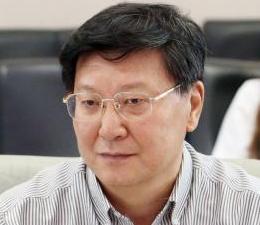After the failure to revoke and replace Obamacare, President Trump is turning his policy focus onto economy and trade.
On March 31, he signed two administrative orders on "Regarding the Omnibus Report on Significant Trade Deficits" and "Establishing Enhanced Collection and Enforcement of Antidumping and Countervailing Duties and Violations of Trade and Customs Laws", which requested a thorough investigation of the huge US trade deficit, and proposals to cut the US trade deficit. On April 18 in Wisconsin, Trump signed a new executive order, "Buy American and Hire American", aiming at reversing economic imbalances, and freeing up the domestic market to the US local companies.
In my view, if Trump really could put his economic commitments during the campaign into practice, the current international economic order will be seriously affected.
The core of the world economic order was established under the leadership of the US. Its core achievement was setting up a mechanism based on the market economy, which is governed by rules, and encourages capital, talents, labor force to be arranged worldwide. This economic order has played an important role in the post-war world economic reconstruction and development.
But what President Trump is doing and intends to do will change the whole story.
First, efforts to repair the deficiencies of the market will dissipate. The economic policies pursued by Trump with very obviously protectionism will discourage the international community from working together to repair flaws of the market. A very big flaw of the free market mechanism is that it can’t give reasonable pricing for public goods. Public goods’ non-competitiveness and non-exclusiveness lead to the abuse of international public resources.
Take climate change as an example: Before the signing of the Kyoto Protocol in 1997, the global society had no consensus on the reduction of the greenhouse gas emission. The increasing frequency of extreme weather events and the increasing risk finally pushed countries to recognize the necessity to tackle climate change together. With joint efforts, the international community reached the 2015 Paris Climate Agreement through the difficult negotiations. Objectively speaking, the US’s active role contributed much to the success of the Paris Climate Conference.
But Trump has labeled climate change a hoax, deemed it as shackling the US economy. After he came into office, Trump soon issued an order abolishing the Obama Clean Power Plan and encouraging traditional fossil energy extraction and use. Trump's "reversing" approach to climate change has cast a shadow over the prospects for the international community to tackle the issue, and has seriously dampened the enthusiasm of countries to tackle climate change. According to a Financial Times report on April 12, 2017, due to the negative action of the US, only 60 percent of the target $100 billion that developed countries has been committed to help developing nations; only $60 billion has been committed and there is still a $40 billion gap.
Second, Trump’s "America First" economic policies with obvious protectionism, unilateralism, and pragmatism, will further delay the process of globalization. In his inaugural address and in his first Congressional speech, he proposed the policy of "Buy American and Hire American" as fundamental, Trump's direct policy objective is to keep the US growth bonus within the US.
The US Trade Representative's Office on March 1 submitted to the Congress of the "2017 Trade Policy Agenda and the 2016 Annual Report: US Presidential Trade Agreement Plan" made it clear that the US will take some non-traditional trade measures, and stated that if the WTO dispute settlement mechanism makes decisions to damage the interests of the US, the US will not comply with WTO rules.
These extremely selfish policies indicate that the US national policy will have an adjusted tone for some time to come. The slowdown in the pace of globalization will continue. According to WTO statistics, world trade grew by only 1.7% in 2016, less than the expected 2.2% — the lowest since 2009. Trump's trade policy changes will make world trade more sluggish. The friction between countries will increase markedly.
Third, Trump’s policies will undermine global governance. Over the past 20 years, a big success in world economic cooperation has been the enhancement of multilateral cooperation. More and more stakeholders are included in the same framework of cooperation. Though the efficiency of negotiations and of policy implementation still need to be improved, the cooperation strongly reflects diversity and inclusiveness, because it takes into account the interests of different participants. However, Trump dislikes the multilateral negotiation framework. Three days after he came into the White House, Trump signed an executive order on January 23 to announce the US withdral from the Transpacific Partnership Agreement. The Transatlantic Trade and Investment Partnership Agreement negotiation was also shelved by Trump.
Trump’s speeches make it clear he would like to shift from the multilateral framework to the bilateral, pursuing "one to one" negotiations with the main trade objects. This is sure to improve the efficiency of the negotiations, find bilateral solutions to problems, but because it will be achieved in a bilateral framework, it can’t be applied widely, its implications are limited and it discourages the effort to strengthen of global governance. In addition, some other countries may take the opportunity to follow the example of the US, ignoring, or even violating the WTO multilateral trade framework and rules. It would be a big setback of globalization.
Fourth, the international economic order pattern becomes smaller. The leader of the world order needs to have a charisma of leadership and an open mind. After World War II, the US took the initiative to reduce trade barriers, provide assistance to other countries, open its domestic markets to other countries, let others share its economic prosperity, and promote the integration of world economies.
But what Trump said during the election campaign and the executive orders he signed after he came into the White House reveal a narrow-minded, conservative and selfish United States. Trump’s logic behind his policies is "zero game". It’s outdated.
If what the American meteorologist Edward Lorenz called the butterfly effect does exist, a butterfly in tropics waving its wings can cause a hurricane in a distant country. The implementation of Trump’s policies will bring a big impact on the world order, an effect beyond imagination.


